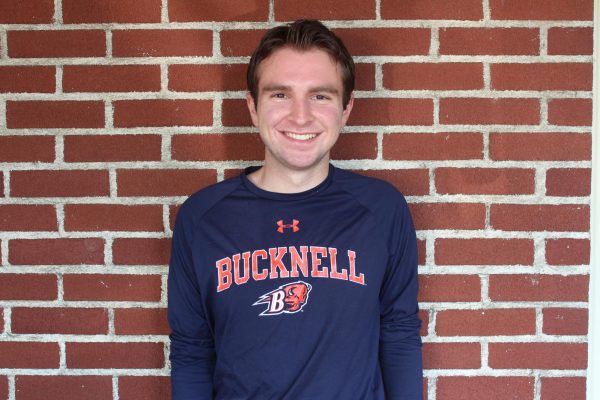Last Thursday, the MLK Week Committee and the Department of Religious & Spiritual Life held a forum titled “Why Is the Conversation So Hard?” to address the current Israel-Palestine conflict in the Middle East after the Oct. 7th attacks, and the rise of anti-semitism and islamophobia here in America.
The talk began with an introduction from Kurt Nelson, the Director of Religious & Spiritual Life. He opened by questioning why it’s so hard to have a conversation regarding this topic, as lives are currently being lost in atrocious ways. People have struggled with viewing each perspective with respect and with the purpose of understanding while disregarding biases that come from news outlets.
Nelson then introduced Professor Caitlyn Olson, Josephine Hildreth Detmer and Zareen Taj Mirza Professorship in Islamic Studies, to provide some “intellectual grounding and understanding of where anti-semitism and islamophobia” came from, according to Nelson.
Throughout her talk, Olson used her knowledge and background as an educator to discuss this complicated topic. She highlighted that this current conflict is “not solely based on religion, though religion has played significant roles within the conflict”. In positing her stance on how religion has affected this conflict, Olson noted the cyclical nature of religious oppression that has occurred in the forms of anti-semitism and islamophobia.
Olson then laid out the foundation and history of anti-semitism as it has been responded to in the United States and across the world, bringing up the recent Pittsburgh Tree of Life Synagogue bombing, and as far back as World War II. She also provided some information on why this might have countries such as the US supporting Israel and strengthening militarily.
Primarily in the aftermath of 9/11, islamophobia, according to Olson, has been an unfortunate racist plague on the US as Americans have constructively perceived something as little as a Muslim name as related to terrorism. She discussed the current condition of the people in Gaza, separating the plight of the Palestinians from the terrorists.
“Not understanding why people do things makes them less human and therefore less sympathetic hence withholding curiosity regulates our sympathy,” Olson said.
She then introduced the next speaker, Rabbi Jessica Goldberg. Goldberg is the Hillel director and Jewish chaplain at Bucknell. She elaborated on Olson’s talk on anti-semitism, bringing up Zionism and how that has played into the conflict as well. She spoke on how Israel was formed into a state and her personal connection to her homeland.
She then brought up the rise of anti-semitism on college campuses and the anxiety and fear Jews are feeling. She suggested that this could be because there has been a “lack of dialogue” between Israelis and Palestinians, leading to a feeling of unsafety for Jewish people in public spaces. Rather than resorting to anti-semistism, she says we should be focusing on how to stop the crisis in the Middle East.
Goldberg then introduced Chaplain Muhammad Ali. He also furthered Olson’s points on islamophobia, addressing its long history in this country. He claimed “hurt people hurt people” and stressed how victimization and oppression start when we lose our moral ground as a people and resort to biases, bringing up things such as slavery and the colonialist British Empire to further his argument.
He also discussed his viewpoint on violence between Israel and Palestine stemming from a “colonial project”, and his perspective as a Muslim person scared for their existence.
Ali claimed that “explanation and justification are two different things” and the ongoing violence goes further back than Oct. 7; he stated that this must be perceived in a completely unbiased geopolitical way for the deaths to stop.
After the forum ended, both Goldberg and Ali took questions from students and faculty.





















